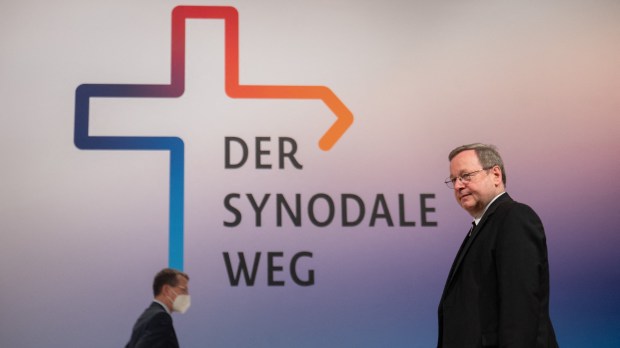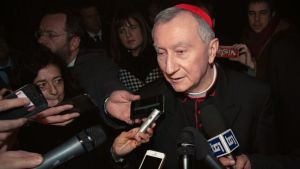After a new intervention by the Holy See, the German bishops have decided to postpone a crucial vote on the constitution of a “synod council” at their assembly opening this week in Augsburg. This change of plans has angered some German lay groups. For his part, Cardinal Christoph Schönborn, archbishop of Vienna, warned the German bishops against the risk of a “schism.”
From February 19 to 22, the 61 members of the German Bishops’ Conference (DBK) are meeting in the small town of Swabia in Bavaria for their New Year’s assembly.
“Despite a busy schedule, I hope that my fellow bishops will also have time to soak up the beauty and spirit of the city of peace of Augsburg,” said host bishop Bertram Meier. By “city of peace,” he was referring to the treaty signed by Emperor Charles V and the Lutheran princes of the Smalkalde League in 1555 to put an end to the wars of religion in the Holy Roman Empire.
The proposed German “synod council”
Tensions are running high around this meeting, however, after the DBK announced that it was withdrawing from the agenda a vote on the statutes of the “synod committee.” This committee would be a temporary body with the purpose of preparing for the creation of a “synod council” by 2026.
This synod council, whose creation was voted on at the fourth assembly of the German “Synodal Way” in September 2022, is intended to enable democratically appointed lay representatives to participate fully in the governance of the Catholic Church in Germany.
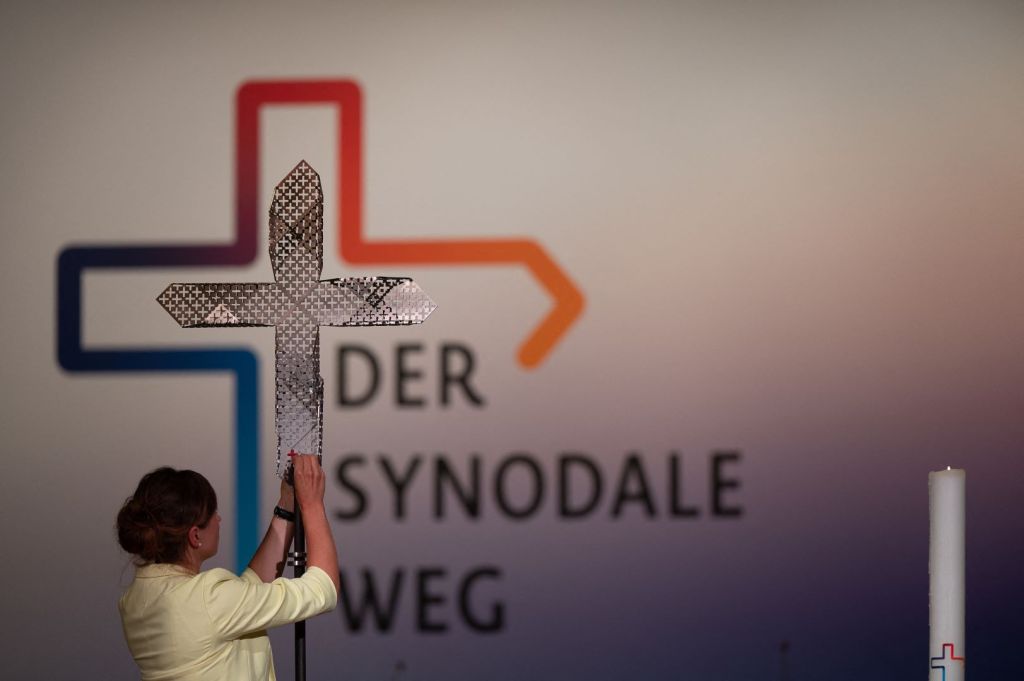
The stated aim is to perpetuate the experience of the German “Synodal Way” and thus enable further discussions between laity and bishops on issues such as power, the role of women, sexual morality, and the priestly way of life.
Opposition from the Holy See
The Holy See has repeatedly opposed this project, considering that it calls into question the authority of the bishop. This was stated by Cardinals Pietro Parolin, Luis Ladaria Ferrer, and Marc Ouellet on January 16, 2023, in a letter sent to the German bishops, and approved in specific form by Pope Francis. They told the German bishops not to create a synodal council. These warnings were subsequently reiterated by the Vatican at several meetings.
However, the German bishops are following an agenda they voted for at the fifth and final assembly of the “Synodal Way” in March 2023. It’s because of this that they are under pressure from certain lay associations. In addition, DBK chairman Bishop Georg Bätzing has repeatedly stated that he considers the creation of a synod council to be valid from the point of view of canon law.
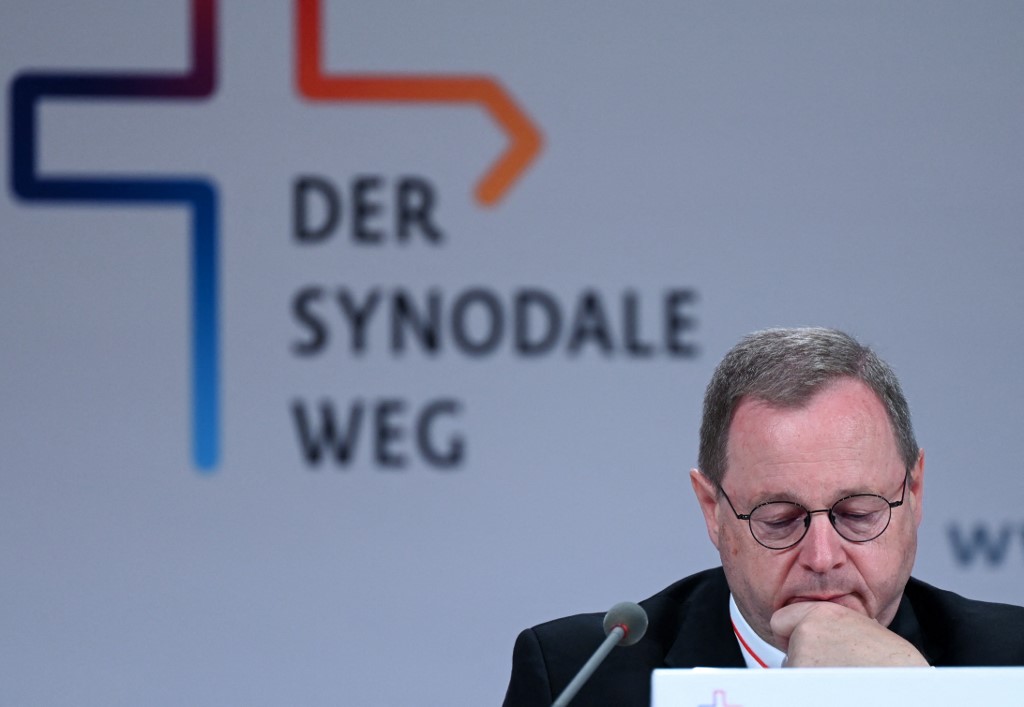
With this in mind, a first meeting of the “synod committee” was held in November 2023, at which time it drew up statutes. However, to be valid, these statutes must be confirmed by the DBK. The conference had therefore planned to put them to a vote at the assembly opening on February 19.
The most recent warning
Cardinals Pietro Parolin, Victor Manuel Fernandez, and Robert Prevost — respectively Secretary of State, Prefect of the Dicastery for the Doctrine of the Faith, and Prefect of the Dicastery for Bishops — anticipated the probable adoption of the statutes in a letter sent in extremis to the DBK on February 16 and broadcast by the German news agency KNA.
The indications contained in the missive, they state, have been “made known to the Holy Father and approved by him.”
The cardinals warn that any creation of a synod committee will be “invalid — with the corresponding juridical consequences.”
In their view, such a decision cannot be taken without the agreement of the entire membership of the Association of German Dioceses. However, a handful of bishops (including Cardinal Rainer Maria Woelki of Cologne) are firmly opposed to its implementation.
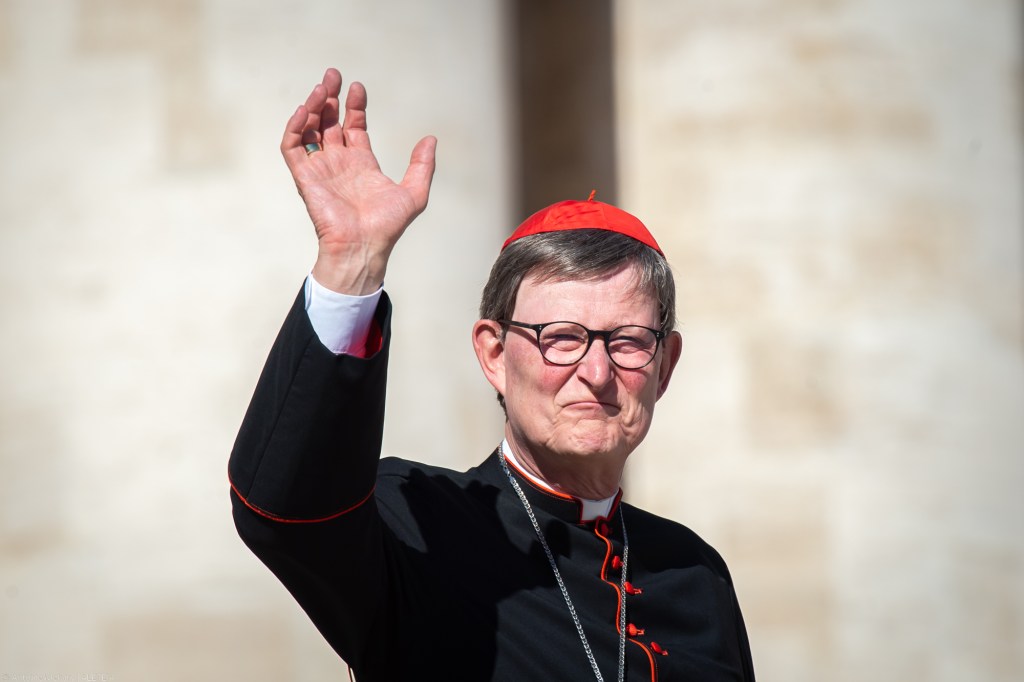
Cardinals from the Curia are also stressing the importance of not crossing the Rubicon while meetings between Roman and DBK officials are scheduled for early this year to settle differences.
“If the Statute of the Synodal Committee is adopted before this meeting, the question arises as to the meaning of this meeting and, more generally, of the ongoing process of dialogue,” they state. They insist that such a vote would be “in contradiction with the Holy See’s instructions issued under the Holy Father’s special recommendation, and would once again present him with a fait accompli.“
German lay people apply pressure
In response to this warning, the DBK announced that it was withdrawing the vote from its program. But Rome’s intervention has been strongly criticized among some groups in Germany, notably by the influential ZdK (Central Committee of German Catholics), the bishops’ main lay interlocutor. This organization recently voted in favor of the statutes of the “synodal committee.”
ZdK president Irme Stetter-Karp has called on the German bishops to act in spite of Rome to ensure that the synodal committee is up and running by the time of its next meeting in June. “The Catholic Church in Germany won’t get a second chance if it stops the Synod Way now,” she insists.
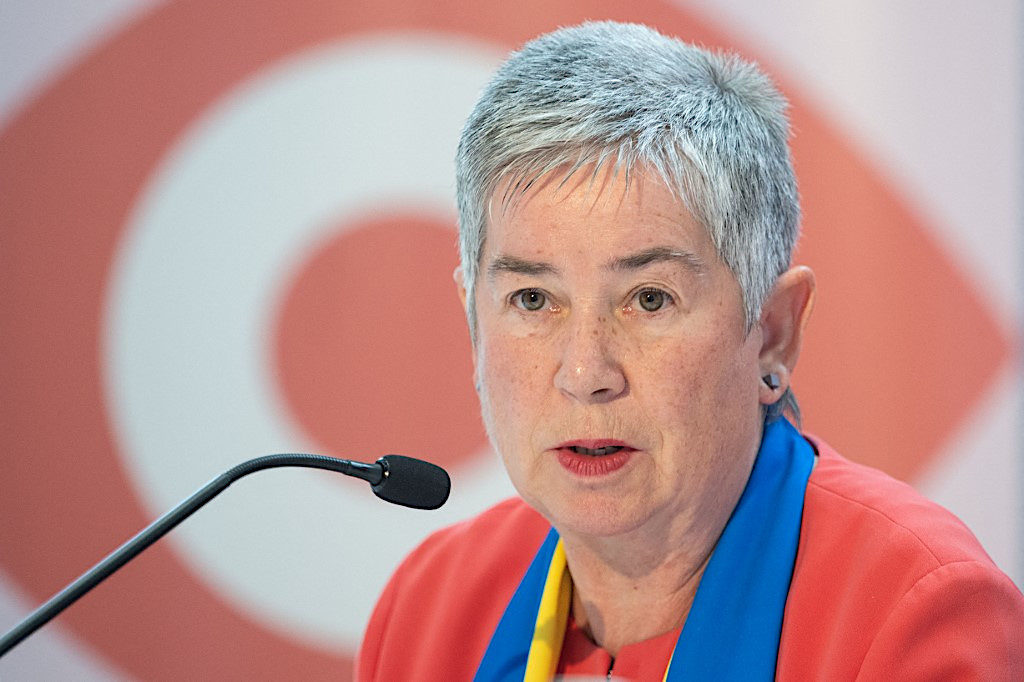
The synod council’s defenders can count on strong support from certain bishops. This is the case, for example, of Bishop Franz-Josef Overbeck of Essen, who announced on February 15 that a structure similar to the synod council, called the “common council,” would be set up in his diocese.
Cardinal Schönborn warns against schism
A number of voices have also emerged to criticize the stubbornness of the German reform movement, including that of Cardinal Christoph Schönborn, archbishop of Vienna, who has a strong voice in German-speaking Catholic circles.
“I am impressed by the patience with which the Pope and the Roman dicasteries are trying to keep in touch with the German bishops and maintain unity and communion,” he says in an interview with the German-language edition of the theological journal Communio, published on February 19.
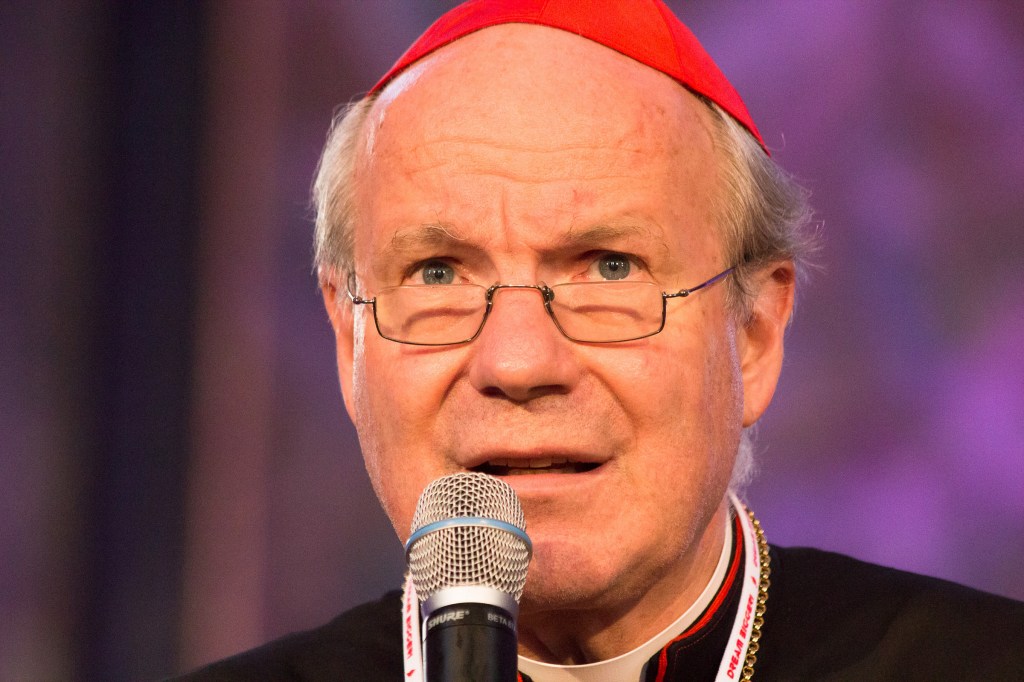
The problem raised by the creation of a synodal council does not concern “the power of the Roman see against the power of the local Churches, but the unity of the faith,” insists the Austrian cardinal, declaring that a bishop “cannot delegate personal responsibility for transmitting the faith to committees.” He encourages the German bishops to make “concessions” and ensure that the ZdK “does not overstep its prerogatives.”
The risk for the German “Synodal Way,” insists the cardinal, would be to become an “Old Catholic Church 2.0″—a reference to the current that broke away from the Catholic Church after the First Vatican Council in 1870. He therefore urges his confreres to abandon the synod committee project: “Refusing to give in would be obstinatio — a clear sign of a schism that no one can want.”
Bishop Bätzing accuses Rome of stalling discussions
At the press conference to launch the assembly in Augsburg, Bishop Bätzing confirmed that the vote on the statutes would not take place “out of respect for Roman leadership.”
Nevertheless, the president said he was “astonished” by the letter and looked forward “impatiently” to being able to dismiss the Holy See’s unjustified concerns. The time set aside for voting at the meeting has been replaced by time to read the letter and prepare for the next meeting.
The Bishop of Limburg has already expressed the view that the outlook of the Curia cardinals and Cardinal Schönborn do not take sufficient account of the “massive damage” suffered by the episcopal office in Germany in recent years as a result of the abuse scandal. He further asserted that there would be nothing in the “synodal committee” “that would contradict canon law,” and that this body would strengthen the bishop’s office, not weaken it.
“We need to start talking,” insisted the bishop, who accused the Roman curial apparatus of moving too slowly. “Responsibility for delays clearly lies with Rome.” A meeting between the Curia and the German bishops was announced for last January, but did not take place; another meeting is planned for April.
